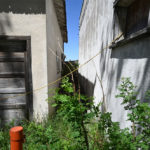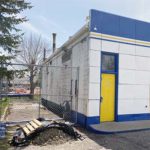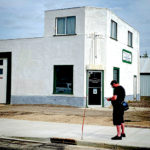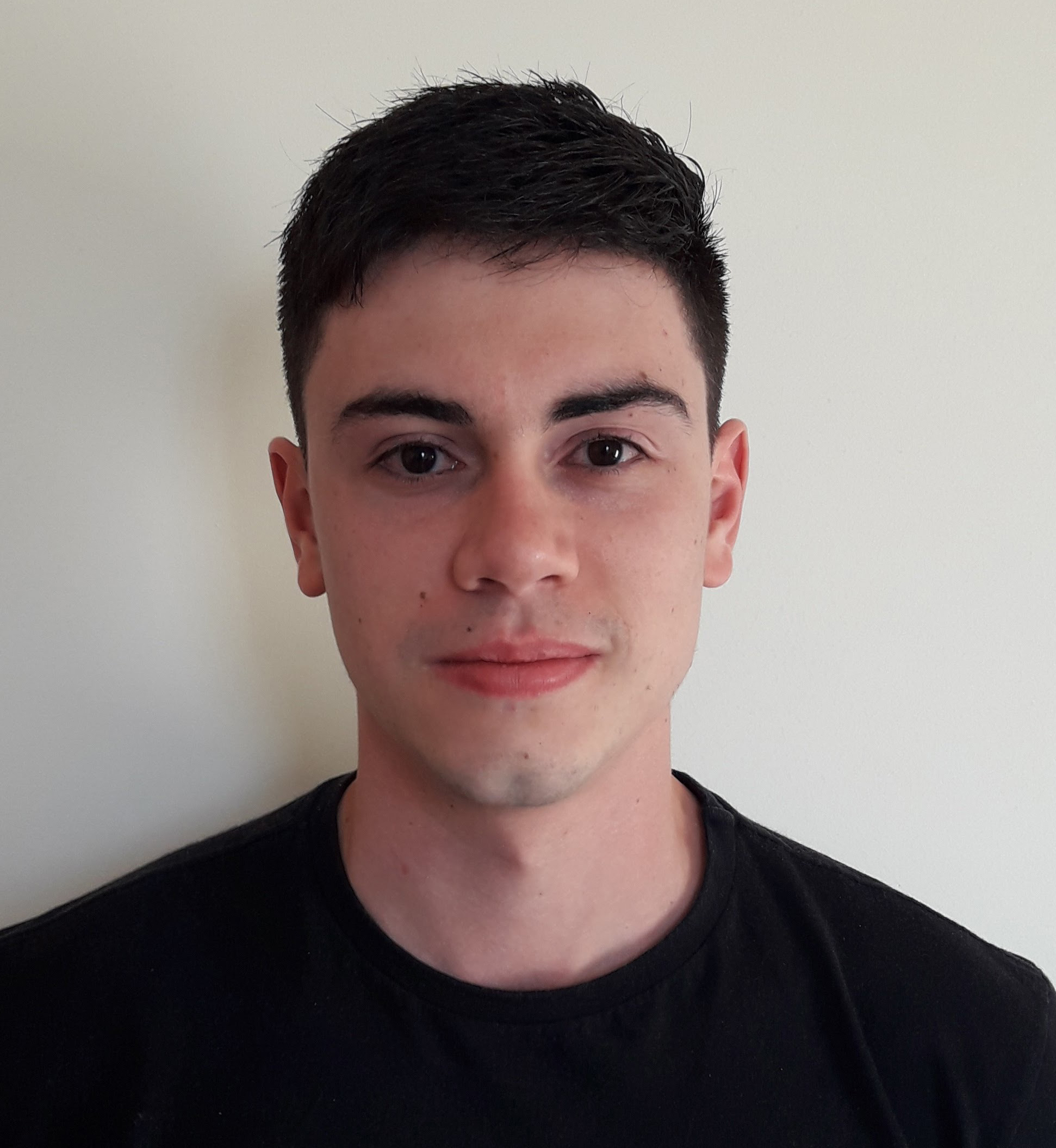Gasoline Station AR
Gas stations are significant 20th century landmarks that are well suited
for digital storytelling.
What do abandoned gas stations represent?

They could be considered typical everyday locations of unimportance but their gradual change and potential destruction or loss can affect those who remember them as pit-stops along journeys in the province of Alberta. The previous century of cultural, technological and economic dependence on fossil fuels has been described as Petroculture. It signifies a gradual growth and eventual reliance upon the economy of fuelling road trips of convenience, discovery and necessity. The rise and decline of the need for small town service stations is tied to advances in automation and declining populations.
University of Calgary digital arts associate professor Jean-René Leblanc, is commencing a 3-year research and visual art project that will investigate the role of petroleum culture in imagination. This research-creation study uses notions of gas stations and road trips as a jumping-off point, but does not aim for a historic or literal re-creation. It takes abandoned gas stations as rich points of departure and as sites for digital storytelling fuelled by past and present memory and experience, as well as future-focused imaginings.
Blog Posts/Works in Progress
Methodology – Locating Old Stations
Locating old gas stations in Alberta and discovering who the owner or tenant is can be a challenge. While we started with online applications for maps using views of the streets, it wasn’t always up-to-date. We have found that a benefit of gaining permission to scan these buildings is getting information of other buildings from locals for buildings that were not on our radar.
Methodology – Scouting the spaces around a Gas Station

One of the challenges with old gas stations that we have located in Alberta is the surrounding terrain, which can make it difficult to capture the photographs necessary to create a model. We use a drone and land-based photography to capture the detail necessary to prepare a model for our work. This post outlines some of the different obstacles and how we work around them.
Methodology – Image Capture Process
 Our image capture process includes using ground-based photography to capture surface details of the sides of buildings, and drone imagery to capture detail of the roof. Where space is limited either due to spaces we cannot reach from the ground or air due to trees, other buildings or overhead power lines we use the capture device that is best suited for our needs.
Our image capture process includes using ground-based photography to capture surface details of the sides of buildings, and drone imagery to capture detail of the roof. Where space is limited either due to spaces we cannot reach from the ground or air due to trees, other buildings or overhead power lines we use the capture device that is best suited for our needs.
Crossfield, Alberta
 In Crossfield, Alberta, located between Olds and Calgary near the Queen Elizabeth highway, is a gas station from 1935. It has been added to over the past decades with an additional floor and service bay. An additional tall service bay for school busses was added in the 50’s. The owner and tenant were generous with their permission to capture this building as a 3D model for the art project. (this blog post includes an embedded 30Mb interactive model of the station)
In Crossfield, Alberta, located between Olds and Calgary near the Queen Elizabeth highway, is a gas station from 1935. It has been added to over the past decades with an additional floor and service bay. An additional tall service bay for school busses was added in the 50’s. The owner and tenant were generous with their permission to capture this building as a 3D model for the art project. (this blog post includes an embedded 30Mb interactive model of the station)
The Project
This project is currently in the first phase, where we are gathering information and data that can be examined for inspiration. You could consider this information as a catalyst for creativity. This phase includes the scouting of potential buildings that have been gas stations or service-oriented locations. We have found 40 such buildings so far using various online tools, but many of them have been demolished since being captured on various mapping applications. For example, Sunset station in Redwater and a combination restaurant and station near Hanna both appear on satellite imagery but have disappeared from Google street view. This effect of digitally remembered locations only reinforces the transient nature of these kinds of structures.
It is our goal to use various technologies to create high resolution 3D models of the remaining gasoline stations and service buildings. These technologies include the use of drones, multiple photographs at ground level, and potentially LiDAR, where lasers are used to get accurate points of reference to create highly detailed models. We are attempting to gain permission to scan these locations properly, and potentially inside where owners have granted access. The models will be shared to communities and owners for their own use, and as records of the buildings should anything happen to them in the future.
For the purpose of this project the exteriors will be used to generate Augmented Reality artworks as described in Phase 2.
If you know of an interesting abandoned gas station you can let us know through the contact information so we can discuss with the current occupants how best to capture these sites with our various 3D scanning technologies.
The material we have gathered during the first phase of the project will be interpreted and represented in works of visual art that communicate new ideas about the history and contemporary uses of gasoline stations and their symbolic status in Alberta. The outside of each gas station will be true to the actual site, while the inside of each station will be created by the Speculative Design work of the creative team in conjunction with the choices selected by the end user / viewer at the time of artistic presentation. This artwork will be shared through a 3D app designed for mobile phones, sharing the exterior of the gasoline station and the creative interpretation of the interior.
Phase 3 will include the dissemination and discussion of the Augmented Reality phone application and any other methods of sharing the artwork created in Phase 2. This involves a robust dissemination plan that includes a comprehensive app launch strategy. This strategy will include the creation of a web landing page, app promotion through artist-run centres in Canada and other Canadian networks related to Canada’s art ecology, and by leveraging social media promotion by investing in App Store Optimization.
PRIVACY POLICY FOR MOBILE APPLICATION
Effective Date: 01/01/2023
Applicable to the Following Mobile Application:
Gasoline Station AR
Article 1 – DEFINITIONS
- a) APPLICABLE MOBILE APPLICATION: This Privacy Policy will refer to and be applicable to the Mobile App listed above, which shall hereinafter be referred to as “Mobile App.”
- b) EFFECTIVE DATE: “Effective Date” means the date this Privacy Policy comes into force and effect.
- c) PARTIES: The parties to this privacy policy are the following data controller: Dr Jean-René Leblanc (“Data Controller”) and you, as the user of this Mobile App. Hereinafter, the parties will individually be referred to as “Party” and collectively as “Parties”.
- d) DATA CONTROLLER: Data Controller is the publisher, owner, and operator of the Mobile App and is the Party responsible for the collection of information described herein. Data Controller shall be referred to either by Data Controller’s name or “Data Controller,” as listed above. If Data Controller or Data Controller’s property shall be referred to through first-person pronouns, it shall be through the use of the following: us, we, our, ours, etc.
- e) YOU: Should you agree to this Privacy Policy and continue your use of the Mobile App, you will be referred to herein as either you, the user, or if any second-person pronouns are required and applicable, such pronouns as ‘your”, “yours”, etc.
- f) PERSONAL DATA: “Personal DATA” means personal data and information that we obtain from you in connection with your use of the Mobile App that is capable of identifying you in any manner.
Article 2 – GENERAL INFORMATION
This privacy policy (hereinafter “Privacy Policy”) describes how we collect and use the Personal Data that we receive about you, as well as your rights in relation to that Personal Data, when you visit our Mobile App and interact with it in any way, including passively.
This Privacy Policy does not cover any information that we may receive about you through sources other than the use of our Mobile App. The Mobile App may link out to other websites or mobile applications, but this Privacy Policy does not and will not apply to any of those linked websites or applications.
We are committed to the protection of your privacy while you use our Mobile App.
By continuing to use our Mobile App, you acknowledge that you have had the chance to review and consider this Privacy Policy, and you acknowledge that you agree to it. This means that you also consent to the use of your information and the method of disclosure as described in this Privacy Policy. If you do not understand the Privacy Policy or do not agree to it, then you agree to immediately cease your use of our Mobile App.
Article 3 -CONTACT:
The Party responsible for the processing of your personal data is as follows: Dr Jean-René Leblanc. The Data Controller may be contacted as follows:
jrleblan@ucalgary.ca
The Data Controller and operator of the Mobile App are one and the same.
Article 4 – LOCATION
Please be advised the data processing activities take place in Canada, outside the European Economic Area. Data may also be transferred to companies within Canada, but will only be done so in a manner that complies with the EU’s General Data Protection Regulation or GDPR. The location where the data processing activities take place is as follows:
University of Calgary
2500 University Drive NW
Calgary Alberta T2N 1N4
CANADA
Article 5 – MODIFICATIONS AND REVISIONS
We reserve the right to modify, revise, or otherwise amend this Privacy Policy at any time and in any manner. If we do so, however, we will notify you and obtain your consent to the change in processing. Unless we specifically obtain your consent, any changes to the Privacy Policy will only impact the information collected on or after the date of the change. It is also your responsibility to periodically check this page for any such modification, revision or amendment.
Article 6 – THE PERSONAL DATA WE RECEIVE FROM YOU
Depending on how you use our Mobile App, you will be subject to different types of Personal Data collected and different manners of collection:
- a) UNREGISTERED USERS: If you are a passive user of the Mobile App and do not register at all, you may still be subject to certain passive data collection (“Passive Data Collection”). Such Passive Data Collection may include through cookies, as described below, IP address information, location information, and certain browser data, such as history and/or session information.
- b) ALL USERS: The Passive Data Collection that applies to Unregistered users shall also apply to all other users and/or visitors of our Mobile App.
- c) COMBINED OR AGGREGATED INFORMATION: We may combine or aggregate some of your Personal Data in order to better serve you and to better enhance and update our Mobile App for your and other consumers’ use.
Article 7 – THE PERSONAL DATA WE RECEIVE AUTOMATICALLY
COOKIES: We may collect information from you through automatic tracking systems (such as information about your browsing preferences) as well as through information that you volunteer to us (such as information that you provide during a registration process or at other times while using the Mobile App, as described above).
For example, we use cookies to make your browsing experience easier and more intuitive: cookies are small strings of text used to store some information that may concern the user, his or her preferences or the device they are using to access the internet (such as a computer, tablet, or mobile phone). Cookies are mainly used to adapt the operation of the site to your expectations, offering a more personalized browsing experience and memorizing the choices you made previously.
A cookie consists of a reduced set of data transferred to your browser from a web server and it can only be read by the server that made the transfer. This is not executable code and does not transmit viruses.
Cookies do not record or store any Personal Data. If you want, you can prevent the use of cookies, but then you may not be able to use our Mobile App as we intend. To proceed without changing the options related to cookies, simply continue to use our Mobile App.
TECHNICAL COOKIES: Technical cookies, which can also sometimes be called HTML cookies, are used for navigation and to facilitate your access to and use of the site. They are necessary for the transmission of communications on the network or to supply services requested by you. The use of technical cookies allows the safe and efficient use of the site.
You can manage or request the general deactivation or cancellation of cookies through your browser. If you do this though, please be advised this action might slow down or prevent access to some parts of the site.
Cookies may also be retransmitted by an analytics or statistics provider to collect aggregated information on the number of users and how they visit the Mobile App. These are also considered technical cookies when they operate as described.
Temporary session cookies are deleted automatically at the end of the browsing session – these are mostly used to identify you and ensure that you don’t have to log in each time – whereas permanent cookies remain active longer than just one particular session.
SUPPORT IN CONFIGURING YOUR BROWSER: You can manage cookies through the settings of your browser on your device. However, deleting cookies from your browser may remove the preferences you have set for this Mobile App.
For further information and support, you can also visit the specific help page of the web browser you are using:
– Internet Explorer: http://windows.microsoft.com/en-us/windows-vista/block-or-allow-cookies
– Firefox: https://support.mozilla.org/en-us/kb/enable-and-disable-cookies-website-preferences
– Safari: http://www.apple.com/legal/privacy/
– Chrome: https://support.google.com/accounts/answer/61416?hl=en
– Opera: http://www.opera.com/help/tutorials/security/cookies/
LOG DATA: Like all websites and mobile applications, this Mobile App also makes use of log files that store automatic information collected during user visits. The different types of log data could be as follows:
– internet protocol (IP) address;
– type of browser and device parameters used to connect to the Mobile App;
– name of the Internet Service Provider (ISP);
– date and time of visit;
– web page of origin of the user (referral) and exit;
– possibly the number of clicks.
The aforementioned information is processed in an automated form and collected in an exclusively aggregated manner in order to verify the correct functioning of the site, and for security reasons. This information will be processed according to the legitimate interests of the Data Controller.
For security purposes (spam filters, firewalls, virus detection), the automatically recorded data may also possibly include Personal Data such as IP address, which could be used, in accordance with applicable laws, in order to block attempts at damage to the Mobile App or damage to other users, or in the case of harmful activities or crime. Such data are never used for the identification or profiling of the user, but only for the protection of the Mobile App and our users. Such information will be treated according to the legitimate interests of the Data Controller.
Article 8 – HOW PERSONAL DATA IS STORED
We use secure physical and digital systems to store your Personal Data when appropriate. We ensure that your Personal Data is protected against unauthorized access, disclosure, or destruction.
Please note, however, that no system involving the transmission of information via the internet, or the electronic storage of data, is completely secure. However, we take the protection and storage of your Personal Data very seriously. We take all reasonable steps to protect your Personal Data.
Personal Data is stored throughout your relationship with us. We delete your Personal Data upon request for cancellation of your account or other general request for the deletion of data.
In the event of a breach of your Personal Data, you will be notified in a reasonable time frame, but in no event later than two weeks, and we will follow all applicable laws regarding such breach.
Article 9 – PURPOSES OF PROCESSING OF PERSONAL DATA
We primarily use your Personal Data to help us provide a better experience for you on our Mobile App and to provide you the services and/or information you may have requested, such as use of our Mobile App.
Information that does not identify you personally, but that may assist in providing us broad overviews of our customer base, will be used for market research or marketing efforts. Such information may include, but is not limited to, interests based on your cookies.
Personal Data that may be considering identifying may be used for the following:
- a) Improving your personal user experience.
Article 10 – DISCLOSURE OF PERSONAL DATA
Although our policy is to maintain the privacy of your Personal Data as described herein, we may disclose your Personal Data if we believe that it is reasonable to do so in certain cases, in our sole and exclusive discretion. Such cases may include, but are not limited to:
- a) To satisfy any local, state, or Federal laws or regulations;
- b) To respond to requests, such discovery, criminal, civil, or administrative process, subpoenas, court orders, or writs from law enforcement or other governmental or legal bodies;
- c) To bring legal action against a user who has violated the law or violated the terms of use of our Mobile App;
- d) As may be necessary for the operation of our Mobile App;
- e) To generally cooperate with any lawful investigation about our users;
- f) If we suspect any fraudulent activity on our Mobile App or if we have noticed any activity which may violate our terms or other applicable rules.
Article 11 – OPTING OUT OF TRANSMITTALS FROM US
From time to time, we may send you informational or marketing communications related to our Mobile App such as announcements or other information. If you wish to opt-out of such communications, you may contact the following email: jrleblan@ucalgary.ca. You may also click the opt-out link which will be provided at the bottom of any and all such communications.
Please be advised that even though you may opt-out of such communications, you may still receive information from us that is specifically about your use of our Mobile App or about your account with us.
By providing any Personal Data to us, or by using our Mobile App in any manner, you have created a commercial relationship with us. As such, you agree that any email sent from us or third-party affiliates, even unsolicited email, shall specifically not be considered SPAM, as that term is legally defined.
Article 12 – MODIFYING, DELETING, AND ACCESSING YOUR INFORMATION
If you wish to modify or delete any information we may have about you, or you wish to simply access any information we have about you, you may reach out to us at the following email address: jrleblan@ucalgary.ca.
Article 13 – ACCEPTANCE OF RISK
By continuing to our Mobile App in any manner, use the Product, you manifest your continuing asset to this Privacy Policy. You further acknowledge, agree and accept that no transmission of information or data via the internet is not always completely secure, no matter what steps are taken. You acknowledge, agree and accept that we do not guarantee or warrant the security of any information that you provide to us, and that you transmit such information at your own risk.
Article 14 – YOUR RIGHTS
You have many rights in relation to your Personal Data. Specifically, your rights are as follows:
– the right to be informed about the processing of your Personal Data;
– the right to have access to your Personal Data;
– the right to update and/or correct your Personal Data;
– the right to portability of your Personal Data;
– the right to oppose or limit the processing of your Personal Data;
– the right to request that we stop processing and delete your Personal Data;
– the right to block any Personal Data processing in violation of any applicable law;
– the right to launch a complaint with the Competition Bureau or applicable data protection authority in another jurisdiction. There are plenty of Canadian consumer protection laws, and the majority of enforcement falls on the Competition Bureau. While the Competition Bureau is a law-enforcement government agency, its focus is on ensuring compliance with the Competition Act.
Such rights can all be exercised by contacting us at the relevant contact information listed in this Privacy Policy.
Article 15 – CONTACT INFORMATION
If you have any questions about this Privacy Policy or the way we collect information from you, or if you would like to launch a complaint about anything related to this Privacy Policy, you may contact us at the following email address: jrleblan@ucalgary.ca.

Dr. Leblanc, Principle Investigator, is an Associate Professor of Digital Arts at the University of Calgary. For twenty years, Dr. Leblanc has investigated notions of masculinity and gender performativity through his research-creation projects.

Denis Gadbois, Collaborator, is a Senior Instructor of Art at the University of Calgary. He is an established designer whose current practice focusses on virtual reality, panoramic/photosphere photography, and rapid prototyping.


Gerry Straathof, Consultant, is a recent MFA graduate from UofC with a Master of Computing Science. His multimedia artwork examines his relationship with abandoned locations in the province, including homesteads, towns and industrial spaces. He uses 3D scanning, model making, programming and electronics in his work.

Arthur Valpato Batista, 3D artist, is a recent Master of Computing Science graduate from UofC. He has mainly worked as a developer, 3D generalist and UX/UI designer in several Augmented and Virtual Reality (AR/VR) applications for Medical Education/training and Art.
Project Updates
[fts_instagram instagram_id=10447531991 pics_count=6 type=user width=100% profile_wrap=no super_gallery=yes columns=3 force_columns=no space_between_photos=10px icon_size=50px hide_date_likes_comments=yes]

